|
EmpowerSurvivors program, Conversations with Elizabeth Previously recorded on 4/24/2023 A very big thank you to Stacy Coulter for being our guest on the EmpowerSurvivors program, Conversations with Elizabeth! Join us as we discuss being a mother of a survivor with the author of the book, "Blindfolds and Pitchforks: Don't Be a Child Molester's Flying Monkey" and the mother of a sexually abused child, Stacy Coulter. As a parent, finding out that one of our children is the victim of childhood sexual abuse is horrifying. Something we may think will never happen to one of our own children. Join us for this Zoom program as Stacy brings us through her story of being a mother of a child who disclosed childhood sexual abuse at the hands of their stepfather. Find Stacy's book on Amazon: https://www.amazon.com/Blindfolds.../dp/1521801592 EmpowerSuvivors is a survivor-led nonprofit organization incorporating the peer support model. EmpowerSurvivors aids in reducing the silence and stigma of childhood sexual abuse. We offer individualized mentorship programs, peer-support groups, classes, and individual mentorship. These programs help assist in the survivor recovery process, reduce isolation, provide skills to help manage lives in the community and promote health and well-being. Find out more at: www.empowersurvivors.net/ Find Us on Facebook: www.facebook.com/EmpowerSurvivors
0 Comments
Join us for another episode of the EmpowerSurvivors Zoom podcast:
Conversations with Elizabeth! Monday, April 10, 2023 6:00 PM Central Time 7:00 PM Eastern Time 5:00 PM Mountain Time 4:00 PM Pacific Time Must register in advance: https://us02web.zoom.us/meeting/register/tZUud-urpzwiH9Hz38R6raU4-ZMZKPb8nZ14 After registering, you will receive a confirmation email containing information about joining the meeting. This week we cover the subject of sibling childhood sexual abuse and trauma with special guests & Survivors, Amanda S., Maria Socolof, and Jane Epstein of the nonprofit 5WAVES. An estimated 80 million children worldwide have experienced sibling sexual trauma or abuse. 88% of survivors don't tell anyone till adulthood if they ever tell at all Join us as we discuss this important topic that is rarely spoken about. What is 5WAVES? 5WAVES is a not-for-profit promoting Worldwide Awareness, Voice, Education, and Support around Sibling Sexual Trauma--child sexual abuse caused by a sibling. The founders of 5WAVES are five women in five different time zones, working to break through the dark shadows of a silent epidemic. As survivors and parents, they each found themselves utterly alone for years and even decades, as they faced the effects of sibling sexual trauma (SST) on their lives and families. Sibling sexual trauma is real. It happens in all types of families. In fact, it is one of the most common forms of child sexual abuse both in the US and worldwide. https://www.5waves.org/ What is EmpowerSurvivors: EmpowerSuvivors is a survivor-led 501c3 nonprofit organization incorporating the peer support model. EmpowerSurvivors aids in reducing the silence and stigma of childhood sexual abuse. We offer individualized mentorship programs, peer-support groups, classes, and conferences. These programs help aid in the survivor recovery process, reduce isolation, provide skills to help manage lives in the community and promote health and well-being. https://www.empowersurvivors.net/ Conversations With Elizabeth is a podcast and video series discussing issues pertaining to childhood sexual trauma, healing, and wellness.
Many survivors of childhood sexual trauma and abuse remain silent about their abuse. Some will never break their silence and will continue to suffer alone. Hanging on to the blame and shame that are not theirs to hold. For those that do tell, there will be survivors that are supported by family and friends and unfortunately, many survivors will not be supported. Survivors instead may be blamed, asked why they don’t just get over it or asked why they continue to let something bother them that happened decades before. As survivors, we may have pushed the memories aside or disassociated and then in midlife find ourselves suddenly being triggered and having the floodgates open up which can completely turn our lives upside down. We may at this time feel gutted, and suffer from flashbacks, intrusive thoughts, nightmares, anxiety, and more. Suddenly we may find ourselves questioning our own sanity. We may have fears that if we were to tell anyone they would know how horrible of a person we really are. We may start to believe these negative thoughts and lies we tell ourselves. We may hate ourselves so much that we spend an unbelievable amount of time punishing ourselves, hating ourselves for not stopping the abuse, for struggling in healing, for not “ having it together”, drowning ourselves in alcohol and drugs, and feeling shame, dirty and unworthy. When healing from childhood sexual trauma and abuse we need to go back and challenge the negative thought patterns that we may have stemming from abuse. Abuse and perpetrators lie and unfortunately, we can believe these lies. In healing, we must learn to break our silences, not an easy task. To discuss the things we have experienced and have a trusted person reflect back the truth that we may have lost. We must learn that childhood sexual abuse is a trauma and injury that can not be forgotten but rather needs to be processed. We must learn that we are loveable and deserving of much and we must learn how to love ourselves, and all our parts, and see our own worth that we sometimes may fail to see. We must reach out to the inner child that suffered so much and had no one, look at them, hold them, love them and say they did not deserve the crimes done to them. The adult part of us will need to care for this child and teach them that they are no longer alone, that we ourselves are our own heroes and we will be the ones to save this child that was not protected. Healing is hard but not unattainable. Healing may look different from survivor to survivor so we must trust the process and not compare. Not beating ourselves up for not healing quickly enough and learning a new way of thinking and operating. Undoing the trauma both in mind and body takes time. We may not feel whole or connected. Healing may look like taking 3 steps forward and six steps back and then doing it all over again. We must not get discouraged but rather accept ourselves for where we are at. At first, the memories may be constant, and we may think we will never return to normal but what is normal? For us, normal after-abuse may mean living in a state of hypervigilance, anxiety, distortions, disassociation, and separated identities. Healing means giving ourselves grace, the permission to ask questions, to learn, to gather support, and not have all the answers. Healing means cutting ourselves some slack for not knowing the things that we believe we should. Healing means accepting ourselves, asking for help, and developing a love for ourselves that may seem selfish. Healing takes place when we incorporate both the mind and body. What our minds don’t remember our bodies do so healing means healing the whole person. We can do this by processing our trauma and learning to appreciate our body's fat rolls and all. Healing is learning to feel safe again in our own skin, taking care of ourselves, and finding ways to feel fully present in our mind, body, and soul. Trauma therapy, peer group meetings, good nutrition, exercise, meditation, yoga, and learning to be a part of a community can help with this. If you are just beginning your healing journey please remember you are not alone. It may feel like we are but there are many of us out here. You will not stay where you are today if you put in the work. Again, this path is not easy. You will always remember the abuse but as you find healing and do the work you will work toward acceptance, and healing. The pain from abuse will lessen. You may find yourself looking back and saying wow, I’m not where I was 3 weeks ago, 6 months ago, a year ago, or five years ago. You will begin to find joy in things again, find authenticity, learn to be transparent, and care for yourself. You may find yourself expanding, growing, and seeing the pleasures in life again. If you are just beginning your healing or have been on this journey for years you matter. Your story matters. You can find healing, it will not be overnight but there can be improvements, new opportunities, and understanding. Someday you may even find yourself looking in the mirror and realizing that all along you have been strong, you have worth, and the fact that the child you went through so much and are still here to talk about it took grit, took courage, perseverance, and that at the end of the day when this could have crushed you completely, you are looking at a person that truly survived and that's worth celebrating. Keep up the good work. You can do this. You survived something that not all survive. You are here walking this journey one day at a time and we are all here rooting for you. You will become your own hero and in the end, you will see your inner child just as I do. A magnificent individual that went through hell and lived to tell about it. You are your own hero, a special gift, and worthy of much. Elizabeth Sullivan Founder of EmpowerSurvivors www.EmpowerSurvivors.net EmpowerSurvivors is a 501c3 nonprofit organization offerring peer support for those
who experienced childhood sexual trauma and abuse. Survivors helping survivors. This is what we do! Staying Sane During The Holidays EmpowerSurvivors is a 501(C)(3). All Rights Reserved. © 2022 www.EmpowerSurvivors.net ****Trigger Warning ***** Holidays can be a hard time for survivors of childhood sexual trauma and abuse. For many, it may mean reminders of past childhood abuse or knowing that the person that perpetrated them will be gathered alongside family members. This may leave you feeling a sense of loss and thoughts of why, why would my family still include the person that hurt me, took my innocence, and caused so much pain. Many survivors feel forced to attend holiday events simply because the people asking are “family”. Survivors may be asked by family members why they are still holding on to something that happened years ago or guilt-tripped and told “ you need to forgive, let it go” or other statements that only make the survivor feel betrayed, abandoned, unloved, and unsupported. As survivors, we know that sexual trauma and abuse are not something you just “ get over” but rather something that needs to be processed in a loving and supportive environment. Each survivor is unique so healing can look different depending on the situation. All survivors deserve support and that includes everyone reading this. How To Stay Sane: 1) Love yourself Give yourself the grace and love that you truly deserve. Go easy on yourself and know that whatever you are feeling is okay. You matter and so do your feelings and experiences. Take time to rest, buy yourself a present, and invest in yourself. 2) Surround yourself with positive and healthy supporters Building a strong support system around yourself is very important. This could include trauma therapists, fellow survivors, peer groups, or those in your life that have supported you on your healing journey. Have a code word for your partner that gives your partner the notice that it may be time to leave a situation or get together that is toxic. 3) Get enough rest, drink water, and watch what you are eating. Sleep is an important factor in life. Without adequate rest, our systems tend to break down. Getting enough sleep can help you handle the stresses of the holidays easier. Stress wears us thin, so healthy eating habits and drinking water can help us regulate our systems and stay healthy. Good nutrition can lead to less depression and an overall healthier lifestyle. 4) Learn or enforce healthy boundaries Think of boundaries as your property line. Boundaries help you to stay safe, is a form of self-care, create realistic expectations, and create safety. If someone crosses your boundary let them know what your expectations are, how they broke your boundaries, and help you advocate for yourself. 5) Know you are not obligated to attend functions simply because they're family. How many times have you been to a gathering that you felt obligated to attend simply because of “ family”? Give yourself permission to decline invitations where your perpetrator is attending or those that have not been supportive. 6) Learn that saying No is okay Many people struggle with saying, "No." Many people have a knee-jerk reaction to say “yes” when they're asked to do someone a favor. Keep in mind, you are never required to say "Yes." It's actually okay to say "No" sometimes. Accept this as you prepare to say "No" to someone. This will help you say "No" with ease. When saying “yes” make sure you are not saying no to yourself. 7) Fight the negative messages Watch your stinkin thinkin! So many times we have negative messages telling ourselves we are being selfish, not worthy, not deserving of love, etc. These are all lies and many times have been put there by our perpetrators or those in our family unit or well-intended friends. Every time you get a negative thought, notice it but kick it out quickly with a positive affirmation. Instead of saying “I am not worthy” replace it with “ I am fearfully and wonderfully made and worthy of much”. Become the person you needed as a child. 8) Create New Traditions Sometimes the abuse we suffered at the hands of others has found us all alone. Creating new traditions can help bring joy back into your life. Have your own party, celebration, or holiday tradition that is only attended by healthy individuals and those that support your healing journey. Volunteer at a food shelf, local school, or soup kitchen, visit the elderly in a nursing home, aid in others' healing, and get creative. You have the power within you to begin new traditions. No matter your situation please know you are not alone, there are many of us out here that celebrate you and your healing. If you are in need of more support please feel free to join one of our Facebook groups that support those that were sexually traumatized and abused in childhood. Together we can find healing and once again find joy. If in immediate danger please call 911 or your local crisis center. Written by: Elizabeth Sullivan, Founder & CEO of the EmpowerSurvivors 501c3 nonprofit. EmpowerSurvivors wishes you and your families much peace and love during this holiday season.
If you would like to support EmpowerSurvivors, the survivors we support, our programs, groups, and classes please consider a donation this holiday season. We look forward to serving you in 2023 and will be announcing new classes and groups soon! Donate today through PayPal, through AmazonSmiles, Facebook fundraisers, or by simply sending a check. We appreciate all who donated in 2022!! Without YOU we could not serve those we hold so dearly. Donations Through Paypal: Select a one-time donation or support us monthly for more impact! https://www.paypal.com/biz/fund?id=MRU3VP4L3KSFU AmazonSmiles Shop at https://smile.amazon.com/ and Amazon will donate 0.5% of eligible purchases to EmpowerSurvivors nonprofit organization—no fees, no extra cost. Simply choose EmpowerSurvivors as your charity! Facebook Fundraisers Go to https://www.facebook.com/EmpowerSurvivors/fundraisers and click on raise money. 100% of the donations will go to supporting EmpowerSurvivors! Mail Check To: EmpowerSurvivors 815 Oak Street West Stillwater, MN 55082 Yesterday I had the pleasure of talking with a foster mom out of Kentucky who is fostering several teens with childhood sexual abuse histories. We had a great discussion on why she became a foster parent, her decision to take in children that were sexually abused, and how we need systematic change. It was wonderful to hear her heart and the passion she has for children that are now in the foster care system, specifically children that were sexually abused. I was so glad to have a conversation on our current foster care programs here in the United States and can say in our short discussion I learned a lot. I have known for years our foster care programs needed real education when it came to early childhood traumas but learned yesterday that many foster parents fear taking a child that has been sexually abused and raped. Many children that are sexually abused will not go to good foster homes due to foster parents worrying about the child offending another child and maybe leary of all the issues that may come up in a child's life when abuse is where they came from. It is true fostering a child with an abuse history is challenging but I think it is worth noting that these kids need help more than ever. As I listened to this foster mom my heart was warmed knowing that there are wonderful foster moms like herself that are willing to take on the challenge and provide safe, loving homes to kids that have suffered so much. At the same time, my heart dropped knowing that a lot of these kids will be passed over simply for being sexually abused by people they may have loved and trusted. As a child being abused many will suffer the effects of the abuse for years to come. Most children however will not go on to sexually abuse others although it is true that many perpetrators had abuse in their childhoods. Most of us that have sexual abuse in our past go on to be great individuals with loving hearts. This is one reason why some survivors stay silent. This thought that those who were abused will be predators creates more shame and will silence many which only perpetuates the epidemic of childhood sexual abuse. I am looking forward to having this foster mom as our guest and having a discussion on the Conversations with Elizabeth program in June 2022. If you are a foster parent or thinking of becoming a foster parent this may be one program you want to tune in to so you can be more informed and join in the conversation. Thank you to all the great foster care parents that are providing safe spaces for children and facing all the battles that go along with taking in a foster child. These kids are worth it and with your love and support, they can go on to live the lives they deserve. FosterCare Statistics There are more than 424,000 children and teens in the Foster Care System nationwide, and every single one deserves a chance at happiness, belonging, safety and love. ( IFoster Blog) The median age of children in foster care is 6 ½ years old. ( IFoster Blog) 20,000 youth age out of the foster care system between the ages of 18 – 21 annually without having found a forever family, leaving them to fend for themselves. ( IFoster Blog) The foster care system underinvests in foster children, contributing less than 50% of what it costs an average American family to raise a child from 0 to 17 years of age. ( IFoster Blog) Within four years of aging out, 50% have no earnings, and those who do make an average annual income of $7,500.After a foster youth age out, homelessness and unemployment become a huge issue. Despite there being more than 34 million entry-level jobs nationwide, many foster youths aren’t prepared to be independent and don’t have the skills or resources needed to access the opportunities that could launch them into employment. ( Family Preservation Foundation) 22% of children had three or more placements during a length of 20 months in foster care. ( Family Preservation Foundation) A Foster youth is less likely to graduate from high school. ( What To Become) At least 40% of foster children have learning difficulties. Which makes sense as they are dealing with trauma. ( What To Become) Foster kids get suspended and expelled from school three times more often than other children. According to foster youth education statistics, children in foster care have different needs and backgrounds than their peers. Many of these children come from abusive households, making them prone to erratic behavior that ultimately leads to suspension or more severe disciplinary measures. ( Partners For Our Children) One out of four foster care kids shows signs of post-traumatic stress disorder. PTSD, also known as a post-traumatic stress disorder, is a huge issue when talking about foster children. Research has shown that at least 25% of the overall number of foster youth in the US suffer from this mental health condition. ( Partners For Children) EmpowerSurvivors is a 501c3 nonprofit that supports survivors of childhood sexual abuse.
Find out more at: www.EmpowerSurvivors.net The Truth About Childhood Sexual Abuse…..
Elizabeth Sullivan, CPSP www.EmpowerSurvivors.net Stillwater, MN The truth about childhood sexual abuse and trauma is that far too many children are affected by this terrible crime and crisis. Crises you may ask? Yes, a crisis indeed. The truth of this situation is far too many children are sexually abused at the hands of those they have trusted and loved. In our culture, there are far too many that believe this crime is perpetrated by strangers. We believe that this crime is perpetrated outside of friendships, churches, institutions, coaches, teachers, groups, family, close and trusted individuals. Sadly, in most cases, the crime of sexual abuse is perpetrated by those in our families and by society members that have groomed not only the child but everyone that surrounds that child. So what then do we do about childhood sexual abuse? There is no easy answer for this question but we start by acknowledging that this crime exists, listening with a loving ear to those affected, learning about the effects, prevention, the healing process, and understanding that the reality of sexual abuse affects 1 out of 4 girls and 1 out of 6 boys. We also have to understand that there is no real way to measure how many children this crime is perpetrated against because most children never tell. The statistics only measure those that were able to break their silences, most keep this secret deep inside of themselves only to have it rear its ugly head when the child is grown and in their 40’s, 50’s on up. How then do we support those that come forward with their abuse and break their silences? We start by listening with a non-judgemental, loving ear. We listen. We love each other. We give survivors safe spaces to express their grief, loss, heartache, and all the rest. Again we listen. Sadly in a lot of cases, a survivor who breaks their silence is not shown this loving support. Those surrounding the individual may not know what to say, may not acknowledge the abuse ever happened, may blame the survivor for not “ getting over it” or “moving on”, or may even tell this person that the abuse was “their fault”. This only adds to the betrayal, shame, and deep pain that these survivors already may feel. It is never a child’s fault for abuse, it is never a child’s fault for not disclosing, it is never a child’s fault for trusting an adult, and it is never the child’s responsibility to save themselves. We can educate our children on this crime, aid in prevention, but ultimately it is up to all of us to protect children. Childhood sexual abuse affects the whole person, mind, body, and spirit. It can crush the individual and lead to more childhood sexual abuse, teen pregnancies, miscarriage, academic issues, drug and alcohol addiction, poor attachments, domestic abuse, working abilities, authority issues, mental and medical health struggles, and more. This is why early detection and prevention are so crucial. If a child or individual you know comes forward please respond with a loving heart. It is vital that this person have a safe space to tell their stories, get help and support. It is important that these individuals find good, trained professionals that have a background in childhood sexual abuse and trauma. These sexual assaults and rape victims deserve the support they often craved as children. Work with them, love them, and be the person that you would want if you were in crisis. Most of all do not tell them to get over it, suck it up, judge, or push the survivor for information. If a survivor discloses their abuse, you should know that it may have taken a lifetime to get to the point of disclosing. This is crucial as what you say or do will either empower the individual or cause more anguish, harm and betrayal. Survivors of this crime can find healing. The process of healing can be incredibly difficult, painful, and at times overwhelming but with incredibly hard work and good support, healing does happen. Survivors will never forget the horrible injustices done to them but with good, solid, and loving support they can thrive. Many survivors will have to undo years of trauma, fix the cognitive distortions that originated from the abuse, suffer through flashbacks, intrusive thoughts, nightmares, anxiety, and self-hate. This is why your response will be so vital. A simple response would be “ I am so sorry this happened to you”, “thank you for trusting me with your painful story”, “ how can I help?”, or “ I am struggling with what to say but please know I love you and are here for you”. Whether you yourself were sexually abused, your partner, your family member, your loved one, or you simply would like more information about our services please feel free to visit our website at www.EmpowerSurvivors.net EmpowerSurvivors, established in 2014, is a peer-led nonprofit, operating out of Minnesota, that supports survivors of childhood sexual abuse. #EmpowerSurvivors #mentalhealth #education #wellness #prevention #nonprofitorganization #childabuse #childhoodtrauma #sexualabuse #Recovery #healing #healingjourney #peersupport #cptsd #cptsd #Community #groups #love Choosing to disclose, or share, a history of childhood sexual abuse (CSA) is a completely individual decision. While some forms of treatment or healing may involve disclosing the trauma to move forward, this may not be the most beneficial option depending on each survivor’s personality or history. Some individuals may want to share what has happened to them, while others may never choose to tell anyone for the rest of their life. Sometimes, the decision not to disclose a history of abuse may be due to a previous attempt to disclose that did not go as planned. For example, some survivors may have tried to tell someone when they were a child or when they were experiencing the abuse and may have been ignored or not believed. This may cause feelings of fear or a lack of desire to try to open up again.
Many survivors will never disclose the abuseIt has been estimated that nearly 20% of all survivors of childhood sexual abuse will never disclose the abuse, and roughly 60% will not disclose the abuse until at least five years after the first incident.1 Whatever the reason may be for not disclosing an abuse, each individual’s story is their own to tell. However, much they want to share is completely up to them, as well as when, or if, they disclose this information to their friends, family, or partners. Although this decision and situation can be handled a variety of ways, there are a few things to consider that may help an individual make the decision to disclose a history of abuse, and ideas to make the process as positive and healthy as it can be. These include, but are not limited to:
In relation to trauma, a trigger is something that calls to mind a previous traumatic situation and may provoke a flashback of the event. Therapists suggest that triggers can vary person to person, and are dependent on an individual’s personal, and often private, experiences. It may be hard to predict what may be a trigger for you or a loved one, however, the more attention you pay to identifying triggers, the easier it may become to predict, control, or manage their effects.
Types of triggersTriggers can be divided into different categories, including those based on our senses. Common categories of triggers may include:
Managing TriggersThere are various approaches to managing triggers. Although everyone’s triggers may be different, there are common tips that can be used to deal with them in a healthy manner. These include, but are not limited to:
|
Archives
May 2024
Categories
All
|

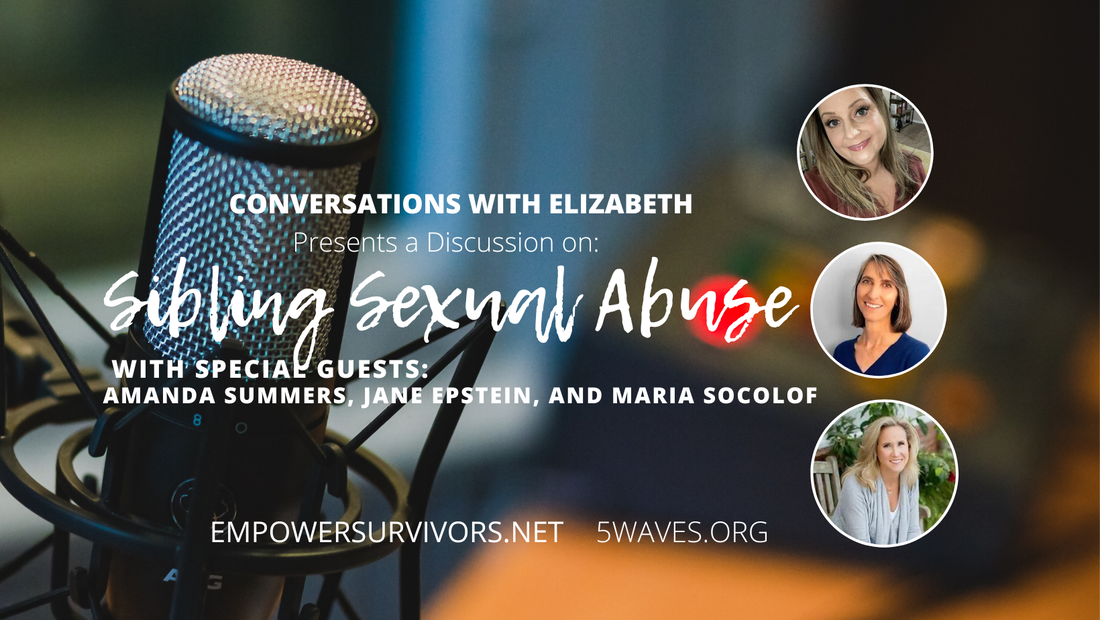
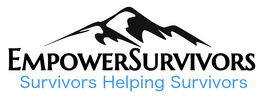
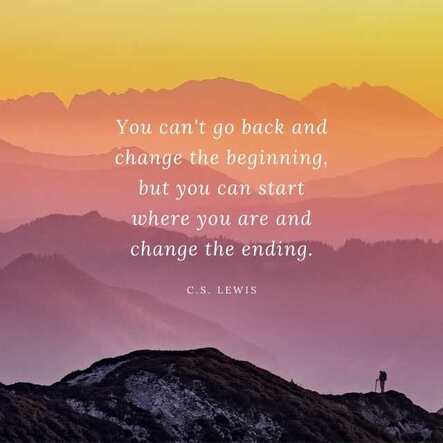
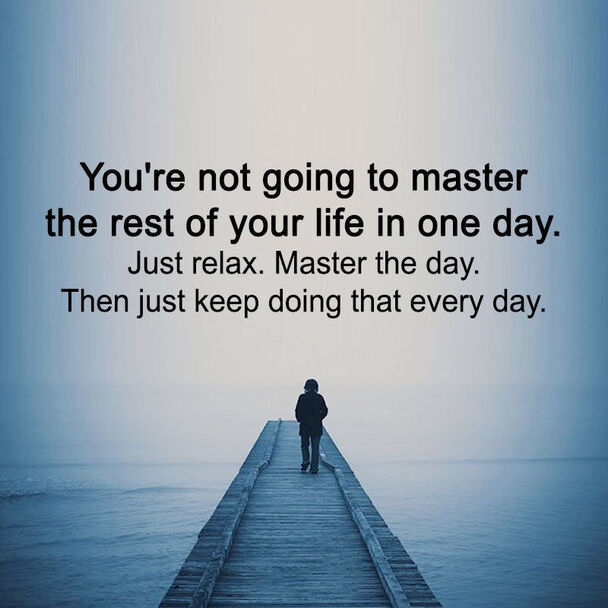



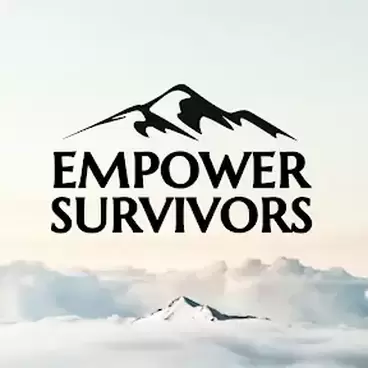
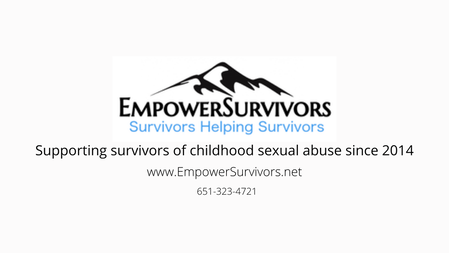

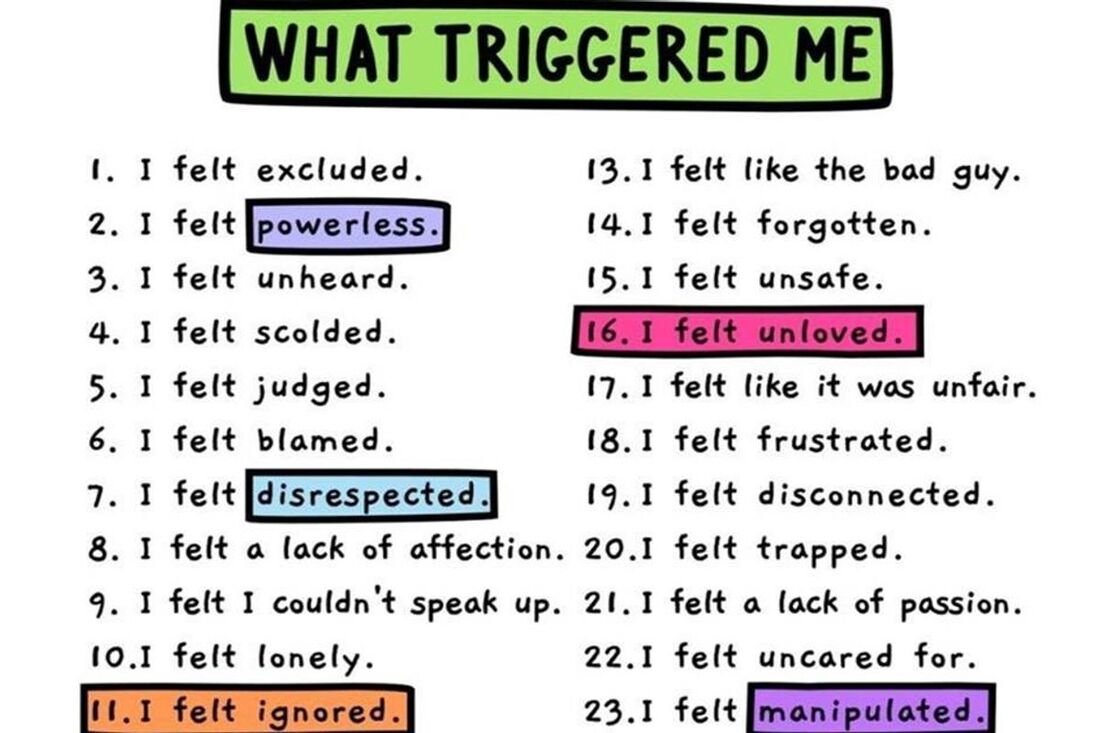
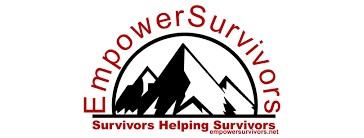
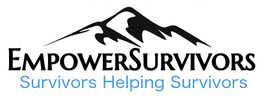
 RSS Feed
RSS Feed